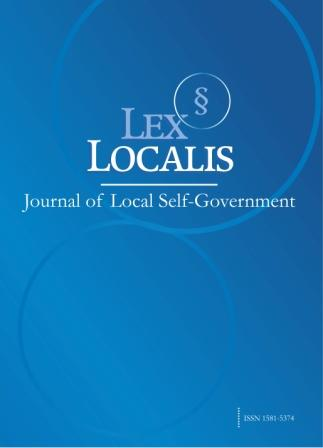A Study on the Construction and Critical Analysis of the Discourse Power of Non-mainstream Groups in the Contemporary Digital Media Environment
DOI:
https://doi.org/10.52152/800031Keywords:
non-mainstream groups; discourse space; digital media; discourse power; mainstream ideologyAbstract
Against the background of the socialist core values leading the development of Chinese society, society as a whole has shown a vigorous and upward trend. At the same time, however, it has been noticed that there is a small group of young people whose way of thinking and acting expresses deviation from and resistance to the “mainstream”, and who are characterized as “non-mainstream”. This project studies this kind of youth non-mainstream group with strong spontaneity, fervor and impulsiveness, and examines the discourse space between “mainstream” and “non-mainstream” groups and the ideological differences behind them from the three dimensions of space, time and value. The study examines the discourse space between “mainstream” and “non-mainstream” groups, and the ideological differences behind them. Through analyzing the generation and operation process of discourse power in digital media, we systematically explore the internal mechanism of discourse power of non-mainstream groups, and provide a theoretical basis for the regulation of discourse power of non-mainstream groups in digital media environment. Then, through questionnaires, the current situation of non-mainstream behaviors of teenagers was investigated in the field from the dimensions of life and interaction. The research found that 94.97% of the adolescents believe that digital media play a relatively important role in influencing the spread of non-mainstream culture, and the Pearson coefficient of the two is 0.637, which is moderately correlated, indicating that the two are closely connected. The diversified types and nature of non-mainstream cultural forms determine that they have a double-edged effect on the mainstream ideology, however, the negative energy of the current non-mainstream groups is greater than the positive energy, which is worth to be criticized and improved.
References
Rhimi, & Yasser. (2016). Mainstream media discourse! or the divine word of the postmodern?. Human & Social Studies, 5(2).
Kleeck, A. V. , & Schwarz, A. L. . (2011). Making "academic talk" explicit: research directions for fostering classroom discourse skills in children from nonmainstream cultures. Revue des sciences de l'éducation, 33(1), 1-18.
Shi-xu. (2014). Cultural discourse studies. Palgrave Macmillan UK.
Hill, E. , Claessen, M. , Whitworth, A. , & Boyes, M. . (2020). Profiling variability and development of spoken discourse in mainstream adolescents. Clinical Linguistics & Phonetics, 1-21.
Amicucci, A. N. . (2017). Rhetorical choices in facebook discourse: constructing voice and persona. Computers and Composition, 44(jun.), 36-51.
Kleinke, S. , & Avcu, E. . (2017). Public discourse beyond the mainstream media: intercultural conflict in socio-political discussion fora. Discourse, Context & Media, S2211695816301064.
Wentao, W. , Yongguo, W. , Marxism, S. O. , University, N. K. , Department, C. P. , & University, T. N. . (2018). On the discourse space of mainstream culture in the we-media. Future and Development.
Hill, A. B. M. . (2021). Profiling variability and development of spoken discourse in mainstream adolescents. Clinical linguistics & phonetics, 35(1a3).
Edwards, J. R. , & Rosin, P. . (2016). A prekindergarten curriculum supplement for enhancing mainstream american english knowledge in nonmainstream american english speakers. Language Speech & Hearing Services in Schools, 47(2), 113.
Gritsenko, & Vladimir. (2016). Interaction on online forums and group communication: a case study of an it support community. Procedia - Social and Behavioral Sciences, 236, 14-24.
Kelly, C. R. . (2012). Recognizing the "social" in literacy as a social practice: building on the resources of nonmainstream students. Journal of Adolescent & Adult Literacy, 55(7), 608-618.
Wu, & Fan. (2015). The influence of non-mainstream culture on the aesthetic judgment of fashion trends. Research Journal of Textile & Apparel, 19(2), 42-47.
Wei-Xi, D. , & Xue-Zhong, Z. . (2012). Study on mainstream culture and non-mainstream culture in physical education curriculum of china. Journal of Beijing Sport University.
Wan-Qun, X. U. , & Xi-Ping, Z. . (2010). Philosophical reflection on the non-mainstream of the generation born in the 1990s. Journal of Foshan University(Social Science Edition).
Du?An, D. , & Dzúrová Dagmar. (2017). Social hazards as manifested workplace discrimination and health (vietnamese and ukrainian female and male migrants in czechia). International Journal of Environmental Research and Public Health, 14(10).
Cranney, S. , & Tulhofer, A. . (2016). "whosoever looketh on a person to lust after them": religiosity, the use of mainstream and nonmainstream sexually explicit material, and sexual satisfaction in heterosexual men and women. journal of sex research, 54(6), 1.
Chavarroa, D. , Tanga, P. , & Ismael Ràfolsa. (2017). Why researchers publish in non-mainstream journals: training, knowledge bridging, and gap filling. Social Science Electronic Publishing, 2016(22), 1-39.
Shepard Carey Leah. (2023). Creating space for translingual sensemaking: a critical discourse analysis of teacher translanguaging during small-group reading. Classroom Discourse(4),344-365.
Katermina Veronika & Gnedash Anna. (2020). Linguistic models of social and political communication in the online-space: cognitive and pragmatic aspect. SHS Web of Conferences01003-01003.
Downloads
Published
Issue
Section
License
Copyright (c) 2025 Lex localis - Journal of Local Self-Government

This work is licensed under a Creative Commons Attribution-NonCommercial-NoDerivatives 4.0 International License.








